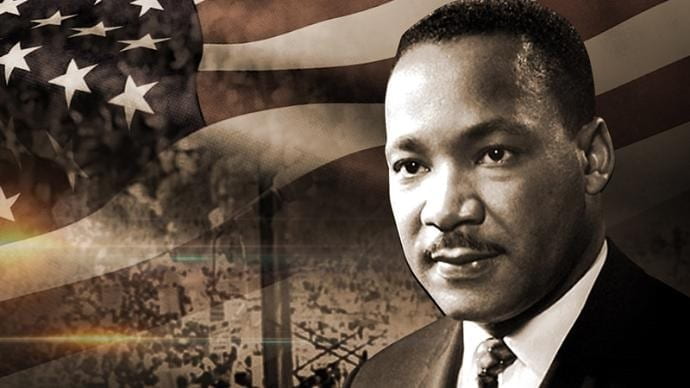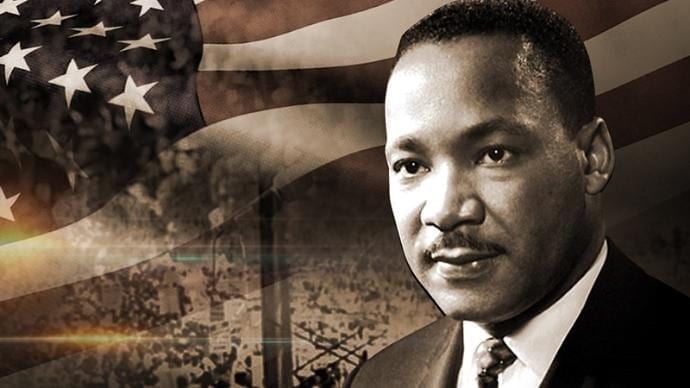Camellia Baki
News Editor
Nearing the 53rd anniversary of Dr. Martin King Luther’s assassination, it is clear that the United States remains filled with issues regarding racial equality. From the reignition of Black Lives Matter to the inequality in the healthcare system that COVID-19 exposed, it forces many to question whether MLK’s dream remained just that – a dream.
“We are more racially divided today than we were in the 1960s,” said Stephen Balkaran, guest speaker at Broward College’s Student Village Square event entitled “Has America Done Enough to Achieve Racial Justice?” Balkaran is currently a lecturer of Political Science at FIU and has a distinguished career authoring several books and articles on race in America. He has worked for The Human Rights Research Fund at Yale University and headed the Civil Rights Project at Central Connecticut State University.
“Let’s not forget the women.” Starting the event, Professor Balkaran made note of the important role women played in the preservation of Dr. King’s legacy. “Many folks don’t realize that Corretta Scott King, Dr. King’s wife, was fighting for the cause way before she met Dr. King. So even in the Civil rights movement, there was sexism.”
“She was the backbone of the family when King was assassinated. It was Coretta who pushed for congressional approval for MLK day in the early 1980s and the creation of the King Center in Atlanta,” highlighted Balkaran.
This preservation of Dr. King’s legacy has made his message celebrated worldwide, as MLK Day is observed in over 100 countries around the world. However, adds Balkaran, “It is important that we understand we have a long way to go.”
“In 1967, a Gallup poll from 1966 revealed that Dr. King was overwhelmingly the most hated man in America,” said Balkaran. This poll revealed that 66 percent of Americans had an unfavorable view of Dr. King. “Yet, in 2021, he is greatly loved. How did fifty years change a country?”
The implication is that the changes in the U.S. regarding racial equality and progress have been minimal at best. “In the last four years, we have had more racial protests for justice and equality by Americans than Dr. King and the Civil Rights movement,” Balkaran pointed out, confounding the idea that MLK’s ideas alone have brought about radical progress.
In an interview over a decade ago with Martin Luther King III, when asked by Balkaran about what his father’s opinion would have been about civil rights today, King said that his father would be disappointed and dismayed.
“So what happened to this dream?” asked Balkaran. “It is 2021 and we are still having the same conversations we had in the 1960s.” On this, Balkaran sites the failure for there to be a consistent and accurate discussion and acknowledgment of racism in America. “We have always had a defective foundation. For the last 300 years, we have made very little attempts to fix it.”
“As we enter the 21st century, silent but not overt racism exists in our society. It permeates in ways we do not even realize.” One of the most astonishing ways, Balkaran points out, is in the education system.
“Harvard University had a Civil Rights project that reported that schools are more segregated today than they were in 1954 because of white flight and the quality of education that is delivered to black and brown students even at a time where we celebrate Dr. King,” stated Balkaran. He furthered, “Only one in two African Americans finish high school, and only 20 percent of African Americans graduate from college.”
“The state of Connecticut is the wealthiest state in the union, and they have three of the poorest cities in the country. These cities are 90 percent African American and Latino and they have some of the worst high school graduation rates in the country.”
To conclude, Balkaran stated, “Dr. King, who could have done many things with his Ph.D., chose to represent the poor. He died on April 4th, 1968 marching with garbage workers in Memphis, Tennessee. Upon his assassination, the city of Memphis gave the garbage workers a 10-cent raise. That is an awful price to pay for freedom.”
Regardless of the ever-present disparities that still exist decades after Martin Luther King Jr.’s death, it reveals why we must hold onto this dream to ensure that his struggle and that of many others was not in vain.

